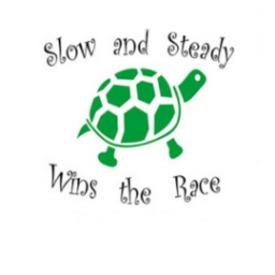We are pleased to announce that as of March 4, 2025, an updated Rich Text Editor has been introduced in the MyFitnessPal Community. To learn more about the changes, please click here. We look forward to sharing this new feature with you!
How Many of Your Exercise Calories Do You Eat Back?

Khovde07
Posts: 508 Member
I've heard varying stories on this. I've heard some say that you have to eat them all back, some say half, some are vague by just saying "some" of the calories, while other say none. I do most of my workouts after work, before dinner and I don't have enough room in my stomach to accommodate all the extra workout calories in one meal and evening snack. I'm trying to try more veggie varieties and eat better in general, so there's fewer calories already. What do you guys do?
0
Replies
-
If I know I'm working out late, I eat more earlier in the day. I eat back 50-100% of my calories because I'm just losing vanity weight and I'd rather have great workouts and lose 0.5 lbs/month than be hungry and lose 0.5/week.
On Tuesdays, I do a BodyPump class after dinner. I know about what that's going to burn every time, since I've been doing it for more than a year, so I factor that into my planning for breakfast and lunch. And then some days I get home and get a cookie to bring my net calories up.
There's no set rule. You can start by eating back 100% of earned calories, give it 4-6 weeks, and see how your weight loss is responding. If it's nil or less than you expect, you can eat back 75%, give it 4-6, and check in again, etc. This is why different people have different answers - bodies are different, and peoples' estimations of calories in AND calories out can vary.4 -
MarylandRose wrote: »If I know I'm working out late, I eat more earlier in the day. I eat back 50-100% of my calories because I'm just losing vanity weight and I'd rather have great workouts and lose 0.5 lbs/month than be hungry and lose 0.5/week.
On Tuesdays, I do a BodyPump class after dinner. I know about what that's going to burn every time, since I've been doing it for more than a year, so I factor that into my planning for breakfast and lunch. And then some days I get home and get a cookie to bring my net calories up.
There's no set rule. You can start by eating back 100% of earned calories, give it 4-6 weeks, and see how your weight loss is responding. If it's nil or less than you expect, you can eat back 75%, give it 4-6, and check in again, etc. This is why different people have different answers - bodies are different, and peoples' estimations of calories in AND calories out can vary.
Of course this is obvious now that you say it! Haha! Does anyone not eat back their calories or eat back very few? Is that super bad for you?
0 -
100% for me. Exercise calories taste the best.
NB: I do take care to make sure my numbers are reasonable.1 -
Crap.
Half the reason I exercise is so I can eat more.
As to not eating them back, if you have an aggressive weight loss goal, and are sticking to the deficit MFP gave you, then not eating them back can lead to real health issues. You need to fuel your exercises.
I know I can leave some on the table as I'm ~210 and trying to lose 1 lb per week, so not that aggressive of a loss rate. But they also look pretty tempting when I want something sweet.3 -
I try to keep at least a couple hundred under them, and less than 900 extra, but I'm not particularly anal about it. I just consider them to be my overflow buffer, lol.1
-
I eat 'em all.2
-
I have been banking some of my exercise calories during the week for wine on the weekends. My net calories for Sunday - Wednesday have been trending under my goal and my net calories for Thurs-Sat have been over my goal. I have only been logging this way for 2 weeks now, so i won't really know if this will truly work for a few more weeks. So far so good though, I have lost about 2 lbs in the last 2 weeks.0
-
100% - I like food and I like exercise so it's a perfect combination.
300 hours of cycling last year (say 150,000 calories conservatively?) and perhaps 150 hours of strength training as my main two hobbies.
Food logging inaccuracy is a far bigger factor for most people but strangely doesn't get the same level of attention or blame for poor results as exercise estimation.
Do put some effort into making your estimates reasonable though. Part of the reason people have the weird, almost Puritanical attitude, to exercise calories is using poor estimating methods.
3 -
Listen to your body. Eat what you need. I went for a walk today and had a snack when I got in. Hadn't planned it, but needed it.0
-
I usually eat (or drink) most of the exercise calories that I log into MFP but those calories are less than what the app or machines give me because I fear they may overestimate my burn. Tonight the treadmill gave me 243 calories burned. I logged 170 to be safe. I gave myself 50 calories for my strength training (about 25 minutes) for a total of 220.
I will probably consume most of them tonight via wine. Or maybe some ice cream. Or I might save some for tomorrow.
If I have plans to eat out in the next day or two I may not eat all my exercise calories and have them as a cushion in case I underestimate my calories when I eat out. 1
1 -
100% - I like food and I like exercise so it's a perfect combination.
300 hours of cycling last year (say 150,000 calories conservatively?) and perhaps 150 hours of strength training as my main two hobbies.
Food logging inaccuracy is a far bigger factor for most people but strangely doesn't get the same level of attention or blame for poor results as exercise estimation.
Do put some effort into making your estimates reasonable though. Part of the reason people have the weird, almost Puritanical attitude, to exercise calories is using poor estimating methods.
Thanks for the advice! I have a Fitbit that measures me quite accurately and I'm careful about weighing and measuring all my food.
The kind of ridiculous issue that I'm running into is that I'm not really hungry enough to eat back my exercise calories. MFP has me at 1600 calories per day and I haven't been able to get up to that even without working out. Hubby and I have been making an effort to change what we eat as well (more veggies, a little less red meat, a few less bad carbs) which is giving us more food for less calories. For example, yesterday I ate my usual amount of calories for breakfast and lunch and had an afternoon snack before my workout. But I gained something like 700 extra calories which put me at something like 1,700 calories for dinner. I had as much food as I wanted and was full from dinner but was still 1200 calories under. I had to eat some ice cream that I didn't necessarily need to up my calories. The only time I can foresee adding more calories throughout the day is mid-morning when I'm a little hungry before lunch but that wouldn't add that much. Any advice on this?0 -
This content has been removed.
-
Ah I literally just started a thread about this in the fitness section before I saw this post! I am in the same boat as you Khovde07 - exercise in the evening, use a fitbit and am very careful weighing all my ingredients. I find restricting my calories forces me to eat healthy so I do it, but then don't have room to eat them after my workout in the evening? Also worrying because I'm now getting super tired in the afternoon so I feel like that is my body telling me I should eat more earlier in the day, but don't want to over-eat and ruin all the effort going into exercising!0
-
Ah I literally just started a thread about this in the fitness section before I saw this post! I am in the same boat as you Khovde07 - exercise in the evening, use a fitbit and am very careful weighing all my ingredients. I find restricting my calories forces me to eat healthy so I do it, but then don't have room to eat them after my workout in the evening? Also worrying because I'm now getting super tired in the afternoon so I feel like that is my body telling me I should eat more earlier in the day, but don't want to over-eat and ruin all the effort going into exercising!
This is so relatable it hurts... lol1 -
Personally, I find my Fitbit to be quite accurate. I'm 5'4", 150lb and have lost 10lb at a rate of just over a 1lb a week. I've got MFP set to lose 1lb a week, but on sedentary, so have a daily allowance of 1200. There is no way I could only eat 1200 - well, I can, but I don't want to. So in comes my Fitbit steps and exercise burn (you're welcome to look at my diary, but ignore the last two weeks of logging, I've been on holiday without the Fitbit). I eat about 50- 75% of them and as I say, have been losing slightly faster than it suggests.
I have been doing this long enough now to see the average daily burn so know that I can reasonably eat 1500 a day or so and still loose. This means I can splash out throughout the day - adding in the odd yogurt, biscuit, fruit, what ever - or choosing full fat (real?!) versions of stuff over the 'lighter' ones. So ultimately, play around and see. You're in this for the long haul, so if it takes a couple of months to work out what works for you, so be it (I know, easier said than done.)
Good luck!0 -
Every. Single. One. I wear an Apple Watch, which seems to be fairly accurate since I'm losing at about my expected rate.1
-
I've heard varying stories on this. I've heard some say that you have to eat them all back, some say half, some are vague by just saying "some" of the calories, while other say none. I do most of my workouts after work, before dinner and I don't have enough room in my stomach to accommodate all the extra workout calories in one meal and evening snack. I'm trying to try more veggie varieties and eat better in general, so there's fewer calories already. What do you guys do?
So I made a rule that has worked well for myself. I can eat back all of my exercise calories (although I'm rarely hungry enough to do that) ONLY IF they are nutritious. Meaning I can't use those *bonus* cals on cake, random ice creams, etc. it has to have a high protein or fiber content. Kind of a weird rule but I found it's what fuels my body best for good lifts and consistent energy.2 -
A big part of why I exercise is so that I can eat more, so I eat back all of them. I'm already at a limit of 1200 net calories/day.0
-
Approximately half, which ends up being 3/4 or so because for some odd reason, early in the day my fitbit goes "Wow!! You're so active, eat! Eat! Eat!!" And then in the evening, when I sit around watching tv or read it starts to realize I'm not *that* active, and take exercise calories away.
Example, last night, my fitbit calorie adjustment was 600+ calories. I was really hungry, so I ate all my remaining regular calories, and ~475 of the exercise calories. I went to bed with deficit of a little over 100 calories. This morning I synced my fitbit, went to look back at yesterday's diary, and found that my 100+ calorie deficit had turned into 49 calories over my goal. 0
0 -
I've heard varying stories on this. I've heard some say that you have to eat them all back, some say half, some are vague by just saying "some" of the calories, while other say none. I do most of my workouts after work, before dinner and I don't have enough room in my stomach to accommodate all the extra workout calories in one meal and evening snack. I'm trying to try more veggie varieties and eat better in general, so there's fewer calories already. What do you guys do?
This depends on how accurate your estimates are and how much trust you have in them. Just logging from a database and blindly trusting the number isn't a particularly good strategy. There are numerous sources to reference to see if what you are logging is reasonable.
I pretty much ate all of my exercise calories back as my research indicated they were pretty reasonable estimates.0 -
1/2 of my cardio calories... none of my weight lifting calories. have not heard of a decent way to track what's burned when lifting, so I round to 0.1
-
@darrenbeckworthdarrenbeckworth wrote: »1/2 of my cardio calories... none of my weight lifting calories. have not heard of a decent way to track what's burned when lifting, so I round to 0.
Well that certainly guarantees an inaccurate estimate!
Log entire duration of your session as "Strength training (weight lifting, weight training)" under the CV part of your diary for a reasonable (if not conservative for a heavy lifter) estimate of your burn based on METS.2 -
Thanks for the advice! I have a Fitbit that measures me quite accurately and I'm careful about weighing and measuring all my food.
The kind of ridiculous issue that I'm running into is that I'm not really hungry enough to eat back my exercise calories. MFP has me at 1600 calories per day and I haven't been able to get up to that even without working out. Hubby and I have been making an effort to change what we eat as well (more veggies, a little less red meat, a few less bad carbs) which is giving us more food for less calories. For example, yesterday I ate my usual amount of calories for breakfast and lunch and had an afternoon snack before my workout. But I gained something like 700 extra calories which put me at something like 1,700 calories for dinner. I had as much food as I wanted and was full from dinner but was still 1200 calories under. I had to eat some ice cream that I didn't necessarily need to up my calories. The only time I can foresee adding more calories throughout the day is mid-morning when I'm a little hungry before lunch but that wouldn't add that much. Any advice on this?
The crucial thing I've not seen mentioned (I'm tired and might have missed it...) is your actual rate of loss compared to your planned rate of loss.
The rate of loss is really the goal - all the estimates are ways and methods to achieve your goal.
If you are losing faster than you want then you have a problem that needs fixing, it will only get harder when you get to maintenance and HAVE to eat more to sustain your weight.
Food timing is an irrelevance.
BTW
Interested how do you know your fitbit is accurate.
How have you validated its estimates? (In a sports science lab? Metabolic chamber? Compared against an accurate calorie estimate from a power meter for example?)0 -
Thanks for the advice! I have a Fitbit that measures me quite accurately and I'm careful about weighing and measuring all my food.
The kind of ridiculous issue that I'm running into is that I'm not really hungry enough to eat back my exercise calories. MFP has me at 1600 calories per day and I haven't been able to get up to that even without working out. Hubby and I have been making an effort to change what we eat as well (more veggies, a little less red meat, a few less bad carbs) which is giving us more food for less calories. For example, yesterday I ate my usual amount of calories for breakfast and lunch and had an afternoon snack before my workout. But I gained something like 700 extra calories which put me at something like 1,700 calories for dinner. I had as much food as I wanted and was full from dinner but was still 1200 calories under. I had to eat some ice cream that I didn't necessarily need to up my calories. The only time I can foresee adding more calories throughout the day is mid-morning when I'm a little hungry before lunch but that wouldn't add that much. Any advice on this?
Eat them the the next day and balance out calories by the week? Use some calorie dense nutritious foods if necessary (nuts, peanut butter, avocados, full-fat dairy, etc.)?
I agree with the advice that what really matters is keeping your actual weight loss rate at a sensible level, but if you're losing riskily fast, the above ideas are what I'd suggest.
Just for completeness: I estimate mine carefully, comparing multiple different estimate sources at first if possible (especially for forms of exercise I'll do frequently), and use the most suitable. Then I eat them all - all through weight loss & 2 years of maintenance. 1
1 -
I'm doing a slow bulk so all + 1002
-
All of them1
-
Thanks for the advice! I have a Fitbit that measures me quite accurately and I'm careful about weighing and measuring all my food.
The kind of ridiculous issue that I'm running into is that I'm not really hungry enough to eat back my exercise calories. MFP has me at 1600 calories per day and I haven't been able to get up to that even without working out. Hubby and I have been making an effort to change what we eat as well (more veggies, a little less red meat, a few less bad carbs) which is giving us more food for less calories. For example, yesterday I ate my usual amount of calories for breakfast and lunch and had an afternoon snack before my workout. But I gained something like 700 extra calories which put me at something like 1,700 calories for dinner. I had as much food as I wanted and was full from dinner but was still 1200 calories under. I had to eat some ice cream that I didn't necessarily need to up my calories. The only time I can foresee adding more calories throughout the day is mid-morning when I'm a little hungry before lunch but that wouldn't add that much. Any advice on this?
I used to have this problem. So I would plan to eat more--bigger breakfast, more calories in my lunch (and dinner if applicable) so that I would be fueled for the evening or night workout. I would eat something afterwards, but I don't like to eat heavy (or meat) in the evening. It doesn't work for me to have 700 exercise calories (which I do sometimes) and then eat them the next day. I will wake up at 3:00 a.m. starving and never catch up anyway. I usually eat back all my exercise calories, but if by chance I can't, then I eat back enough to at least be over 1300 calories that day. The only problem with eating extra calories before is that if you decide not to work out, then you have overeaten for the day! So in a way, it makes me work out because I don't want that to happen.
There is always peanut butter, nuts, olives, cheese, avocado, jerky, extra piece of chicken at lunch/dinner, extra egg or piece of bacon at breakfast, just a few suggestions.0
This discussion has been closed.
Categories
- All Categories
- 1.4M Health, Wellness and Goals
- 391.5K Introduce Yourself
- 43.5K Getting Started
- 259.7K Health and Weight Loss
- 175.6K Food and Nutrition
- 47.3K Recipes
- 232.3K Fitness and Exercise
- 392 Sleep, Mindfulness and Overall Wellness
- 6.4K Goal: Maintaining Weight
- 8.6K Goal: Gaining Weight and Body Building
- 152.7K Motivation and Support
- 8.1K Challenges
- 1.3K Debate Club
- 96.3K Chit-Chat
- 2.5K Fun and Games
- 4K MyFitnessPal Information
- 23 News and Announcements
- 927 Feature Suggestions and Ideas
- 2.7K MyFitnessPal Tech Support Questions





















